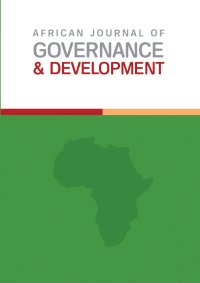Necessitating a Germane Developmental Local Government Agenda in South Africa: A Post COVID-19 Contemplation
Main Article Content
Abstract
Development initiatives in developing countries where experiences of inequalities are prevalent, mean that sustainable livelihoods of citizens need prioritisation. Local government’s constitutional mandate in South Africa includes realisation of a development agenda wherein citizens can participate in the economic activities and improve their well-being. However, since establishment of the South African democratic local government in the year 2000, certain features which have served to impede interventions to make municipalities functional are observable. These impediments include several of the following critical elements: firstly, a lack of transformation on the rural municipalities. Secondly, municipalities continue to demonstrate a lack of institutional capacity and skills. Thirdly, the need to maintaining municipal efficacy in organising and coordinating developmental plans. Fourthly, a lack of robust use of technology and access to reliable data to inform decisions making processes. In addressing these issues within the post COVID-19 environment, this conceptual article relies on a human-centred development approach to critically appraise these specific features of local government. A human-centred approach argues that the nature of institutional architecture, developmental agendas and technology need to resonate with context specific needs of certain municipal residents. It is clear from the literature, municipal
reports and auditors’ reports reviewed that the disruptions of COVID-19 outbreak mean that most municipalities would not survive the impact of this pandemic. In its final analysis, it is a considered view of this article that human-centred approaches, context driven
solutions and access to technological devices should form a post-COVID-19 pandemic approaches to developmental local government in South Africa.
Article Details

This work is licensed under a Creative Commons Attribution-NonCommercial-NoDerivatives 4.0 International License.
